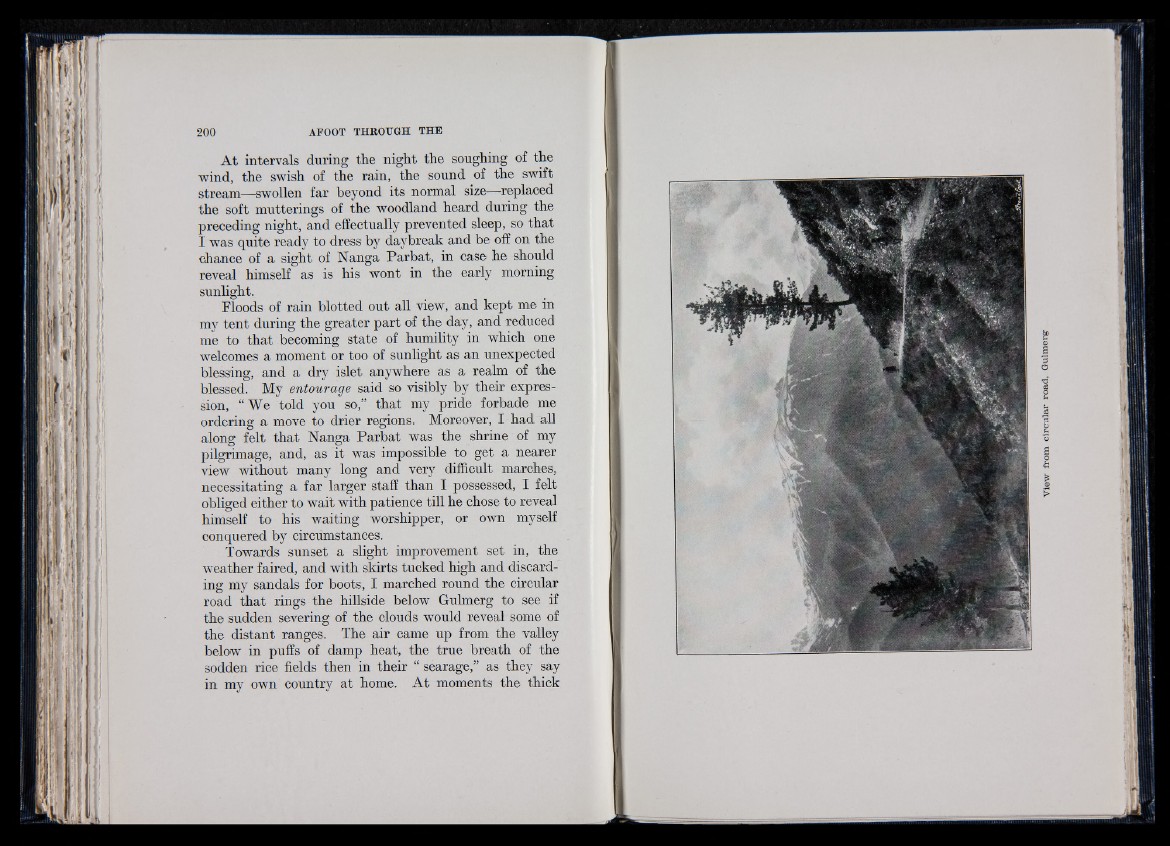
At intervals during the night the soughing of the
wind, the swish of the rain, the sound of the swift
stream—swollen far beyond its normal size—replaced
the soft mutterings of the woodland heard during the
preceding night, and effectually prevented sleep, so that
I was quite ready to dress by daybreak and be off on the
chance of a sight of Nanga Parbat, in case he should
reveal himself as is his wont in the early morning
sunlight.
Floods of rain blotted out all view, and kept me in
my tent during the greater part of the day, and reduced
me to that becoming state of humility in which one
welcomes a moment or too of sunlight as an unexpected
blessing, and a dry islet anywhere as a realm of the
blessed. My entourage said so visibly by their expression,
“We told you so,” that my pride forbade me
ordering a move to drier regions. Moreover, I had all
along felt that Nanga Parbat was the shrine of my
p ilg rim a g e, and, as it was impossible to get a nearer
view without many long and very difficult marches,
necessitating a far larger staff than I possessed, I felt
obliged either to wait with patience till he chose to reveal
himself to his waiting worshipper, or own myself
conquered by circumstances.
Towards sunset a slight improvement set in, the
weather faired, and with skirts tucked high and discarding
my sandals for boots, I marched round the circular
road that rings the hillside below Gulmerg to see if
the sudden severing of the clouds would reveal some of
the distant ranges. The air came up from the valley
below in puffs of damp heat, the true breath of the
sodden rice fields then in their “ searage,” as they say
in my own country at home. At moments the thick
View from circular road, Gulmerg